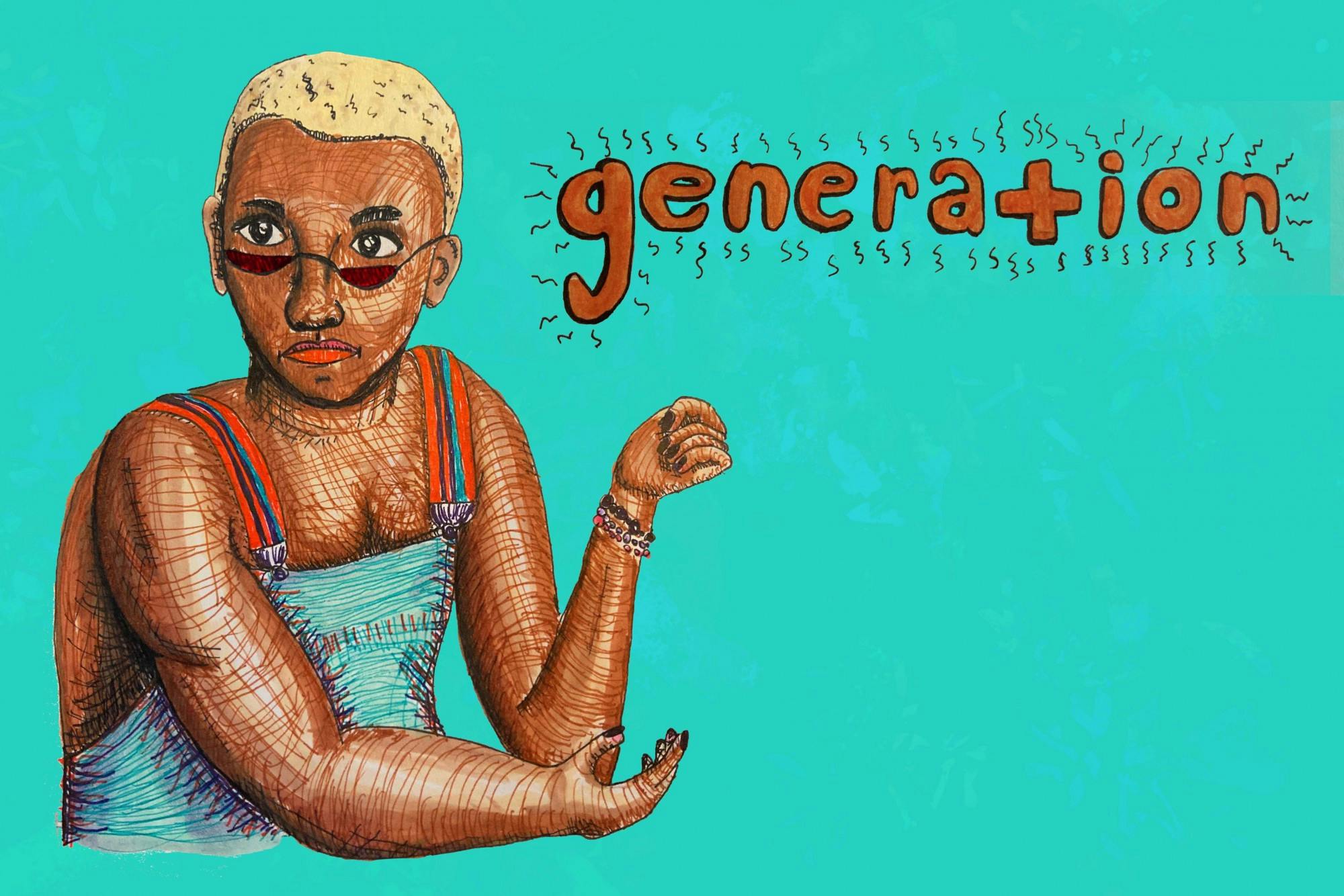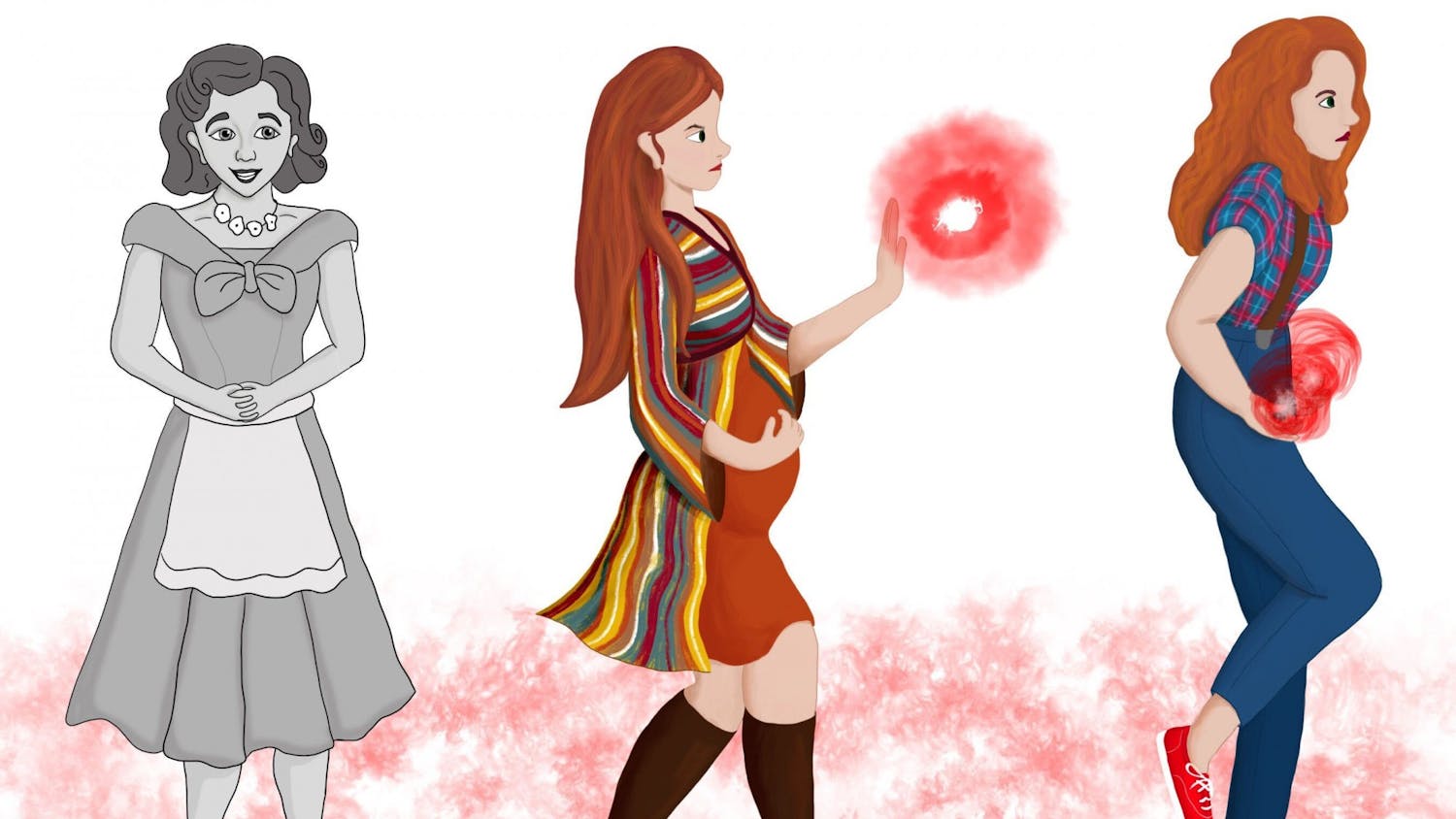Whenever I walk into a party, I can’t help but ask myself how each person is experiencing the party themselves — the couple in the back curled into an embrace, the gaggle of girls infused by music, their hair a silky blur; a half-drunk group with hands raised as a pong ball sinks into stinky froth. In the colored lights and thrumming bass of a party, it’s practically impossible to see anyone clearly — to see the world through the eyes of those disguised by makeup and alcohol and fake smiles.
“Generation” tackles just that — how the world may be seen through someone else’s eyes. The series rotates through an ensemble cast of high schoolers, each navigating the murky waters of a high school in conservative Orange County, California. In the very first episode, the audience is taken into a party thrown by Riley, played by Chase Sui. We first see the party through the eyes of one character at a time, with each seeming to firmly believe that no one else could be more miserable than them. The viewer thus gets a window into both how uniquely ridiculous, awkward and self-obsessed the teenage experience can be. Their narcissistic behavior seems outlandish at first — each character acts like they’re the only person on earth — but quickly becomes believable as the show invites viewers to reminisce on their own teenage experience.
By the end of the episode, you feel fully immersed in a kaleidoscope of experiences — of visions and personalities and raging teenage emotions. Each character, though at times cartoon-like in their embodiment of familiar character tropes, is also aggressively likeable.
Witnessing the party through each of their eyes, viewers can see a facet of themselves glinting back at them. From episode one, I was wrapped in a sheath of nostalgia for how it feels to be a high schooler, for the world to be open and at your constant disposal; how it feels for each moment of happiness, embarrassment or anger to be amplified ten-fold. And it felt wonderful.
As the series unfolded, that feeling never left me. But along with seeing myself reflected in their lives, I began to feel an intense empathy for how each of these characters’ multifaceted experiences differed from my own. Each character contained multitudes, and anyone, it seemed, could find a part of themselves reflected back in the show. Greta, shy and suffering due to body-image issues and her mom’s deportation to Guadalajara, was also absorbed by a crush on her classmate. Nathan, born to a conservative family, had to balance his parent’s lack of acceptance of his queer identity as he fought over a boy with his sister. Riley, born into a rich family, had a penchant for breaking the rules through photography and an unfair reputation for being “easy.” Chester — perhaps the main character in the series — who wears colorful crop tops, painted nails and struggles with both a fear of death and rejection, is also a grade-A student and a star polo player. Due to the characters’ rich and diverse backgrounds, I felt that every viewer could find something with which to empathize, a theme that doesn’t just make viewers invested in the plot, but keeps them coming back. I, for one, re-watched the series for a second time almost immediately after the first run.
The show is ambitious in its attempt to touch on a wide array of societal issues: deportation, LGBTQ+ rights, the stigma against womens’ sexual freedom, social justice and environmental degradation. At times it felt like too much, but that was, perhaps, the point. Viewers see each of the characters trying to grapple with the enormity and multitude of issues that our country must face — issues that are inextricably entwined with both their lives and our own. It’s okay to feel overwhelmed at the state of this country, the show seems to say, but that doesn't mean these issues shouldn’t be addressed.
Although each character had diverse experiences, they all shared an inability to see past their romantic struggles. So, viewers had the privilege to see each person as a complicated being with their own background — each character so wrapped up in their own insecurities, worries, doubts and fears that they practically formed a cocoon around them. They only saw their friends and classmates based on how these characters could see them in their own lives. The main characters rarely paused to consider how their classmates may also be suffering from an unrequited love of their own, a feeling that they were undeserving of affection, or a hurtful reputation for being “easy.” I was urged to reckon with my high school days, and how I may have also acted in the same selfish manner.
This teenage cocoon of emotions manifested in some uncomfortable scenes that left me wondering how the characters could have acted in the way they did. Sometimes it felt too staged, too dramatic, and quite often, too annoying. It was hard to imagine that any teenager could really be that dramatic or self-obsessed. But then, I had to remind myself that the show spotlights the point of view of teenagers, whose unique ways of seeing the world can be difficult to remember even if you’re only a few years removed from your own teenage experience. And this is perhaps where the brilliance of the show manifests — one of the producers is herself a teenager, thus contributing an authentic perspective. Daniel Barnz co-wrote and produced the show with his daughter Zelda Barnz, who wrote the pilot at 17 and was only 19 at the show’s release. Zelda was able to infuse her own experience into the show, portraying Gen Z teenagers and their mindsets.
Only the first eight episodes of the total 16 in the series have been released, with the rest slated to air later this year. The eighth episode ends with the characters riding a pickup truck, all still unable to see past their own romantic or sexual frustration. But, at the same time, each of them had just committed an act of extreme generosity for a friend, one that had been foreshadowed in every episode. Already, I could see the barriers hemming them into their own experience beginning to break down. With eight episodes left, they have plenty of time to realize that other beings exist on the planet other than themselves. I can tell you with certainty that I’ll be waiting, enthusiastically, for the next release.
Rating: ★★★★☆



